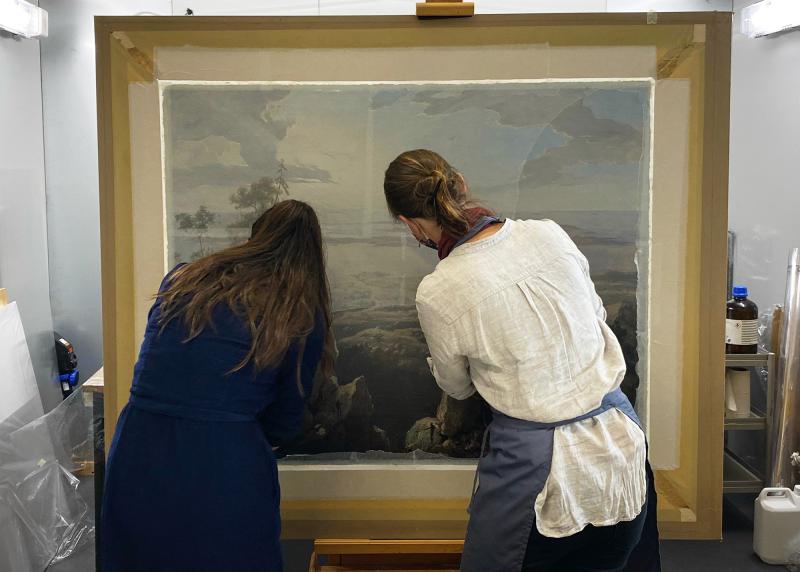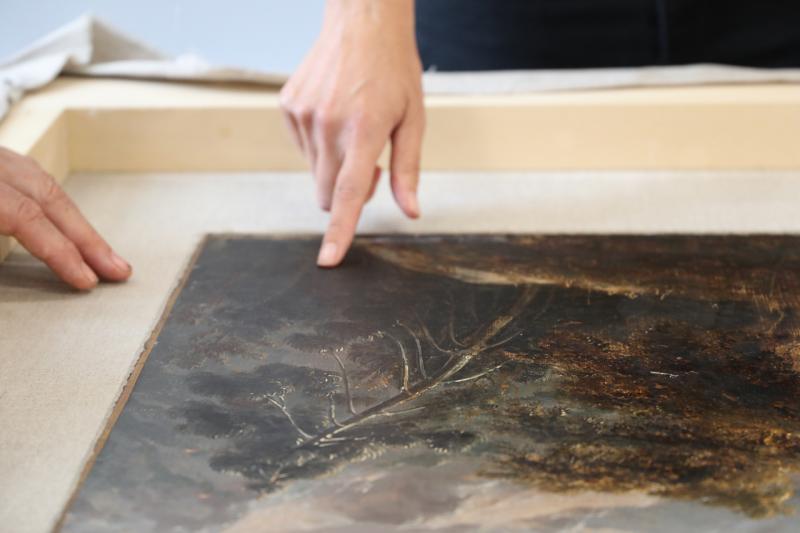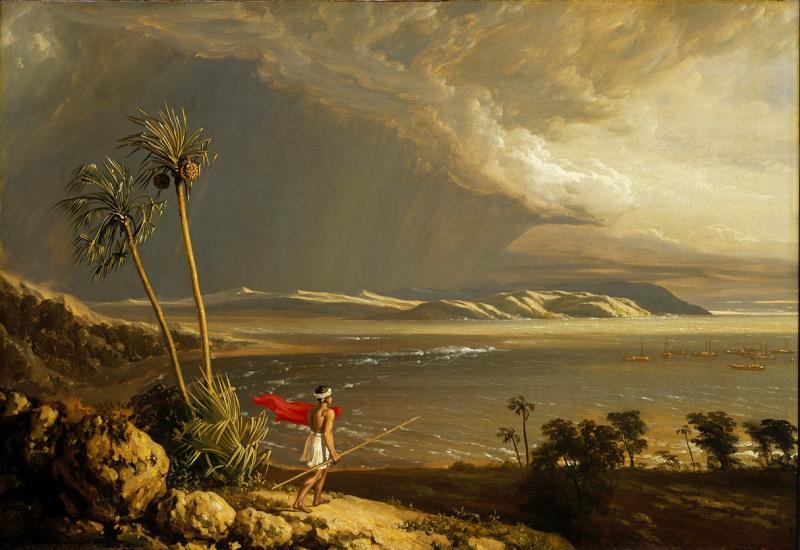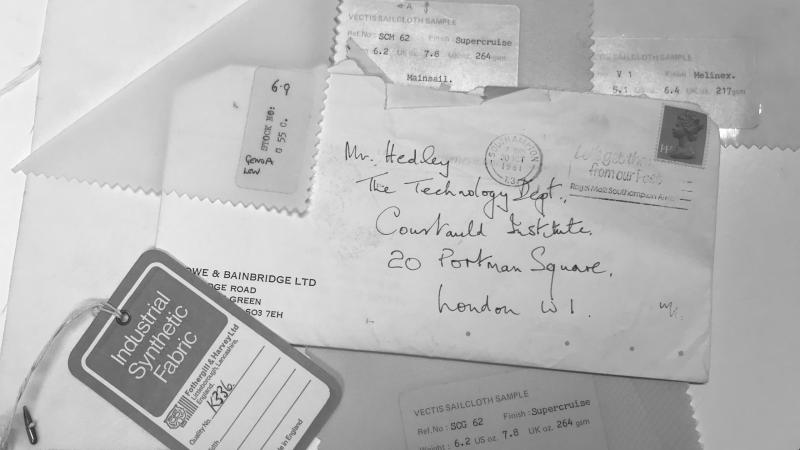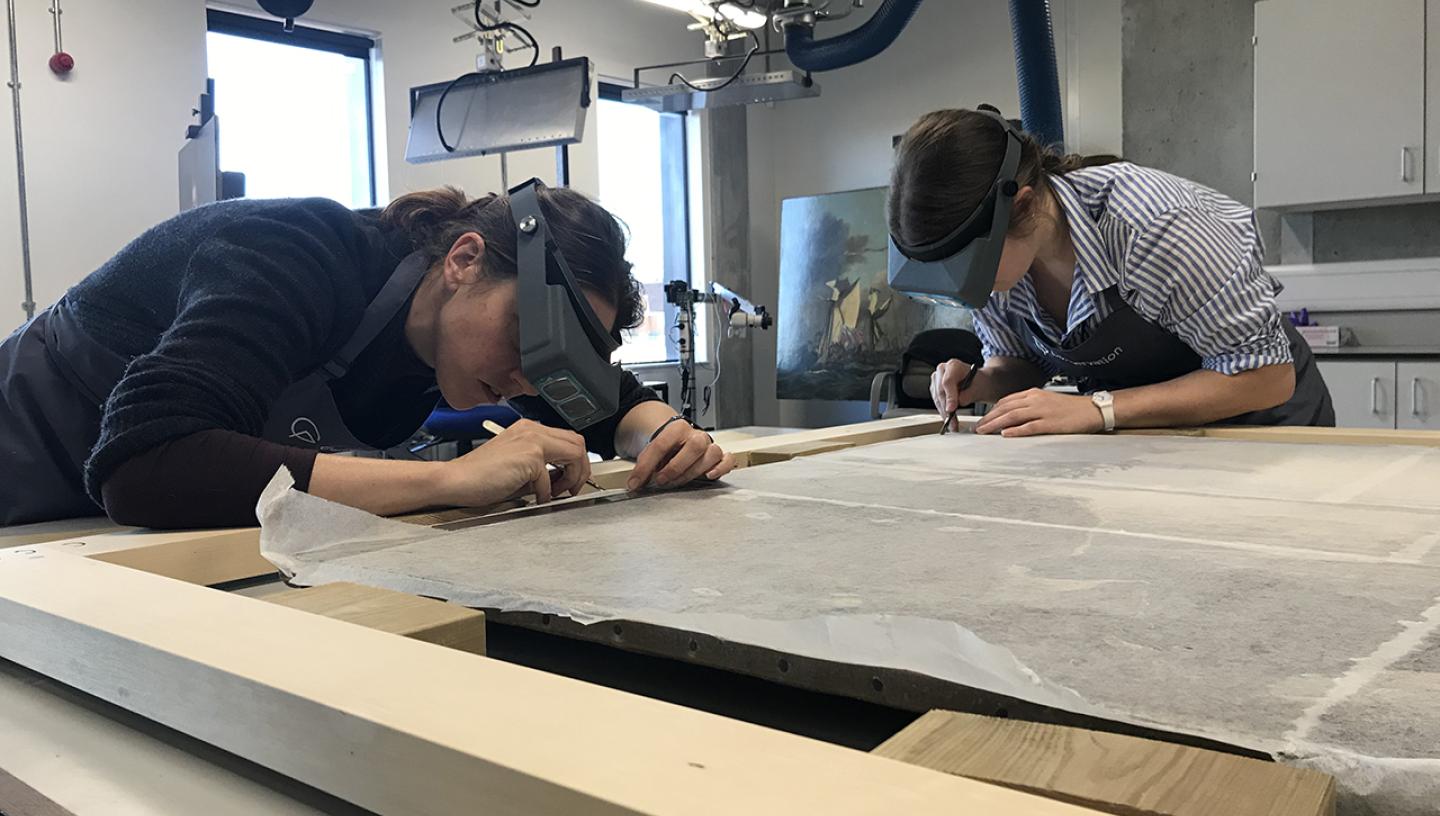
Fifty years ago, the National Maritime Museum was an internationally renowned centre for the lining of canvas paintings. Its conservators developed innovative lining techniques, which changed the practice around the world.
After the Second World War, a new generation of conservators transformed the tradition of picture restoration into a more scientific and ethical profession.
A key figure in this movement was Westby Percival-Prescott, who led the National Maritime Museum’s Picture Conservation Department between 1961 and 1983.
Percival-Prescott and his colleagues identified the lining of canvas paintings as a neglected area of research. They adopted a new technique for lining paintings using a vacuum envelope that had been developed at The Courtauld. This was less damaging to paintings than older techniques, which involved intense pressure and high heat.
Percival-Prescott also encouraged conservators to avoid relining unless strictly necessary. Prior to this, new linings were often applied indiscriminately, with little regard for the resulting loss of the painting’s original surface texture.
A world-leading conference
As a result of this pioneering research, one of the most important conferences in the history of conservation was held at the National Maritime Museum in 1974.
The Conference on Comparative Lining Techniques brought together experts from around the world, and fundamentally changed attitudes towards the lining of painting.
The influence of this conference still informs conservation today, but the expertise involved in lining are being lost as specialists retire.
The Westall Lining Project will ensure that a new generation of conservators are trained in these techniques. Now part of Royal Museums Greenwich, the National Maritime Museum is once again at the forefront of this important branch of conservation.
Our partners
The Westall Lining Project is a collaboration between Royal Museums Greenwich and The Courtauld, with generous support from the Getty Foundation through its Conserving Canvas initiative.



